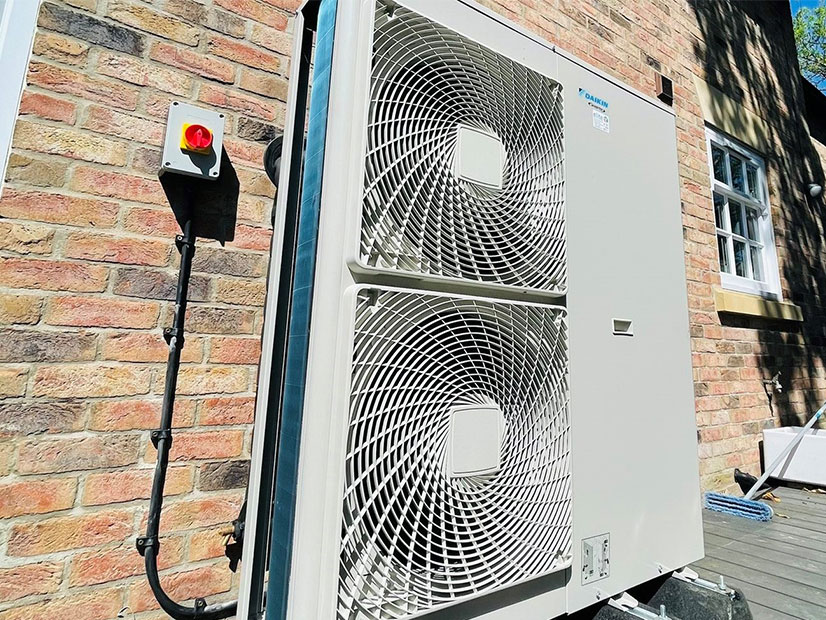A bill before the Massachusetts legislature would create a legal route for gas companies in the state to sell heat instead of natural gas and allow utilities to transition to non-emitting, renewable thermal energy.
Gas companies are highly regulated and can work only in accordance with rules set by the Department of Public Utilities. Under current state laws, gas utilities are only allowed to sell gas; there is no regulatory framework for geothermal energy.
“We have to take on buildings,” said Ania Camargo, one of the founders and coordinators of the Gas Leaks Allies and a leader in Mothers Out Front. In addition to reaching net-zero emissions by 2050, Massachusetts also set a goal to retrofit 1 million homes to be energy efficient in 10 years. But the state still has more than 2 million homes that rely on oil, gas and propane for heat.
Installing air source heat pumps one building at a time would be too slow, and most of the people pursuing retrofits on their own have “the time and resources to figure out MassSave,” a complex state program, Camargo told NetZero Insider.
To accelerate the shift away from gas, An Act Relative to the Future of Heat in the Commonwealth (S.2148) includes incentives that halt the depreciation of fossil-fuel infrastructure after 2050.
The legislation also includes a provision that uses securitization to fund a thermal technologies training program for gas workers and provide retrofits and new appliances for low-income housing. Low-interest bonds secured by ratepayers would be used to reduce the financing costs of installing the new geothermal infrastructure. The bill mandates that any savings from the lower cost bonds are allocated for replacing gas appliances with electric appliances in customers’ homes and retrofitting the homes of low-income ratepayers.
Without an early focus on low-income ratepayers and environmental justice communities, they would be left to pay higher gas prices after high- and medium-income customers electrify their systems, Camargo said.
The bill would change the state’s gas system enhancement plan (GSEP), created by the 2014 Gas Leaks Act, to cover life extension technology for natural gas pipes instead of replacing them completely.
That switch would ensure that natural gas pipelines are used only until they can be replaced by a connected ground source heat pump system, Camargo said.
Under current GSEP rules, companies can spend 1.5% of their revenue to replace leak-prone pipes. With about 25% of Massachusetts gas pipes considered “leak prone,” the funding is going toward a “huge investment in infrastructure we don’t want,” Camargo said.
According to the Applied Economics Clinic, gas pipeline replacement is expected to cost between $15.5 billion and $16.6 billion.
The Joint Committee on Telecommunications, Utilities and Energy will hold a hearing on the bill sometime this year, according to Sen. Cynthia Creem, who filed the latest version of the bill earlier this year alongside state representatives Lori Ehrlich and Jack Lewis.
“It makes no sense to spend billions of dollars on fixing gas pipelines,” Creem told NetZero Insider. But the bill is “not an attempt to shut off the utilities”; it is a way to “incentivize them to upgrade their equipment” and create funding mechanisms gas companies can use to develop renewable thermal energy alternatives, she said.
Gas pipeline workers would continue working for the same companies as they transition to geothermal, Creem said. “They will still be working with pipes, only they are using pipes to provide geothermal.”



